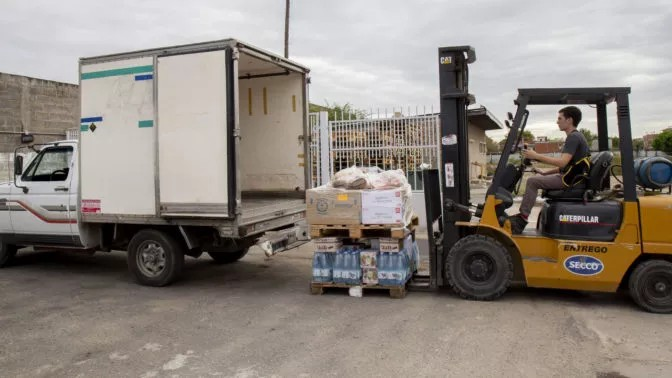Lagos State Drags Nigerian Government To Supreme Court Over Magodo Estate Crisis
The Lagos State Government, on Friday, announced its return to the Supreme Court despite the court's initial ruling on the occupation of Magodo Estate.
The announcement was made by the state’s information commissioner, Gbenga Omotoso.Amid the contention over the ownership of the land, the Federal government accused the Lagos State Government of delaying the enforcement of the February 10, 2012, judgment in suit no. SC/112/2002.
Meanwhile, the South-West Governors had condemned the Federal Government after a Chief Superintendent of Police told Governor Babajide Sanwo-Olu that officers deployed to Magodo would not leave.
The superintendent had openly told the governor that he and his colleagues were at the estate on the orders of the Inspector-General of Police, Usman Baba; as well as the Attorney-General of the Federation and Minister of Justice, Abubakar Malami.
This had attracted backlash for the AGF who stated that his office “belongs to the Executive arm of the Government, while the Supreme Court belongs to the Judiciary.”
Malami criticised their “unjustifiable insinuation of impunity” over the execution of a judgment of the Supreme Court.
He recalled that the verdict was delivered in 2012, long before the start of the Buhari administration.
“The judgment was a reaffirmation of the judgments of the Court of Appeal and High Court delivered on 31st December 1993.”
The AGF advised the governors to “unravel” what’s preventing the Lagos government from enforcing the order “despite attempts from 2012- 2015 and so-called settlement initiative started in 2016.”
But on Friday, the Lagos State government returned to court, Omotosho noted.
He said following Sanwo-Olu’s intervention, Lagos officials and representatives of the Shangisha Landlords Association (the judgment creditors) held a series of meetings.
“At the said meetings two issues arose: There was a serious division among the judgment creditors as to who controlled or had the right to represent the Association; and the demand by the judgment creditors that a single global Certificate of Occupancy should be issued in the name of the Association as opposed to the position of the State Government that each of the 549 members of the Association would be given allotment letters individually.
“Given the sharp divide between the two factions of the judgment creditors on who has authority to represent the Association and the disagreement regarding whom the Certificate of Occupancy should be issued (collectively or individually), the State Government has approached the Supreme Court to seek further directives and clarifications on both issues.”
Omotoso also confirmed that Judgment Creditors have been served with the application.
The statement reiterated the Lagos government commitment to comply with the Supreme Court judgment “once these two issues are resolved.”
The superintendent had openly told the governor that he and his colleagues were at the estate on the orders of the Inspector-General of Police, Usman Baba; as well as the Attorney-General of the Federation and Minister of Justice, Abubakar Malami.
This had attracted backlash for the AGF who stated that his office “belongs to the Executive arm of the Government, while the Supreme Court belongs to the Judiciary.”
Malami criticised their “unjustifiable insinuation of impunity” over the execution of a judgment of the Supreme Court.
He recalled that the verdict was delivered in 2012, long before the start of the Buhari administration.
“The judgment was a reaffirmation of the judgments of the Court of Appeal and High Court delivered on 31st December 1993.”
The AGF advised the governors to “unravel” what’s preventing the Lagos government from enforcing the order “despite attempts from 2012- 2015 and so-called settlement initiative started in 2016.”
But on Friday, the Lagos State government returned to court, Omotosho noted.
He said following Sanwo-Olu’s intervention, Lagos officials and representatives of the Shangisha Landlords Association (the judgment creditors) held a series of meetings.
“At the said meetings two issues arose: There was a serious division among the judgment creditors as to who controlled or had the right to represent the Association; and the demand by the judgment creditors that a single global Certificate of Occupancy should be issued in the name of the Association as opposed to the position of the State Government that each of the 549 members of the Association would be given allotment letters individually.
“Given the sharp divide between the two factions of the judgment creditors on who has authority to represent the Association and the disagreement regarding whom the Certificate of Occupancy should be issued (collectively or individually), the State Government has approached the Supreme Court to seek further directives and clarifications on both issues.”
Omotoso also confirmed that Judgment Creditors have been served with the application.
The statement reiterated the Lagos government commitment to comply with the Supreme Court judgment “once these two issues are resolved.”



Comments